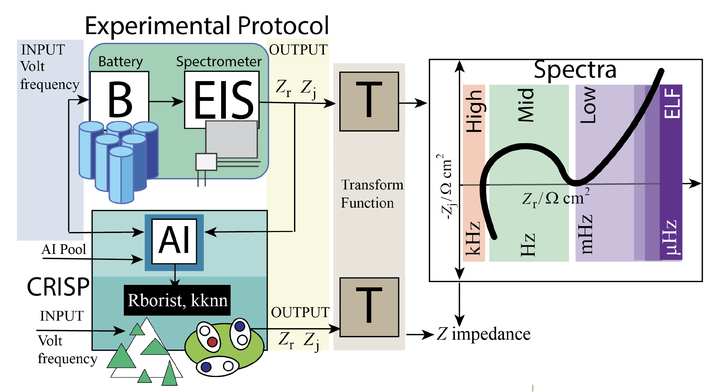Impedance Spectroscopy

Lithium-ion batteries (LiBs), the energy-dense electrochemical devices ubiquitous in mobile energy applications, are nearing their theoretical energy density limits, with many aspects still poorly understood. This research introduces an innovative application of Artificial Intelligence (AI) to Electrochemical Impedance Spectroscopy (EIS) measurements, aiming to accelerate innovation in LiBs performance and safety. Our method, the Comprehensive Regression for Impedance Spectroscopy Prediction (CRISP), employs AI to significantly enhance EIS measurements across a broad impedance spectrum, including extra low frequencies (ELF). CRISP predicts real and imaginary parts of impedance behavior, Z, using a modest data set. Tested over varying charging states, CRISP exhibits speed and accuracy, particularly in challenging ELF regions. Built efficiently without specialized hardware or libraries, CRISP is adaptable for human-in-the-loop operations, if needed. This pioneering work offers substantial promise for online monitoring and characterizing LiBs, potentially hastening advancements in LiBs technology.